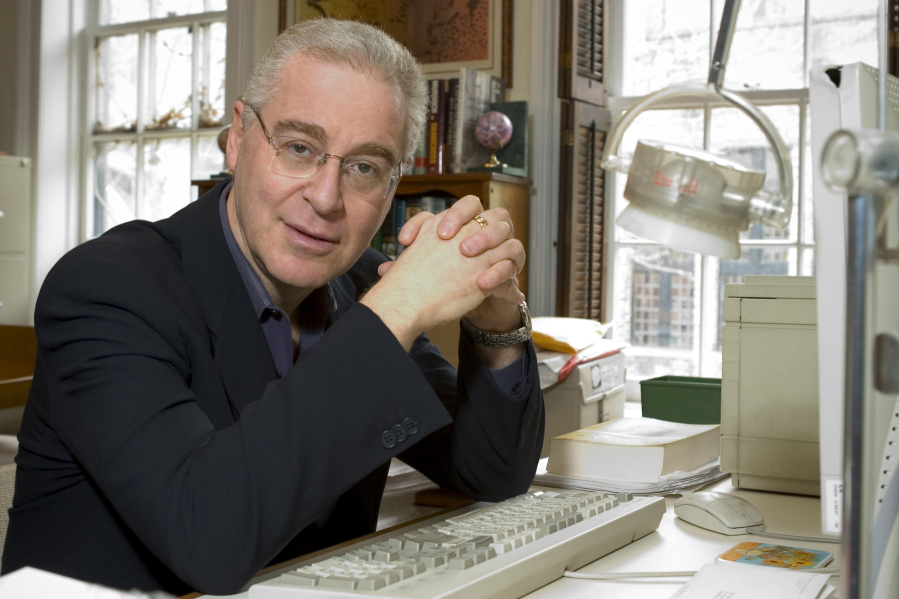Ever since I learned that the Broadway musical “Hamilton” was inspired by a prizewinning biography, my mind has been roaming over other books about the Founding Fathers that are feats of great storytelling.
In case you’ve been on that proverbial desert island (with a book, I hope) — Lin-Manuel Miranda, the musician and actor who created “Hamilton,” got his inspiration from a book — Ron Chernow’s biography, “Alexander Hamilton.”
The book got rave reviews when it came out in 2004, but it seemed destined for a modest afterlife in the paperbacks section. Then Miranda read it. He told Chernow that Hamilton’s life was “a classic hip-hop narrative,” Chernow recalled in the Times of Israel, the story of a societal outsider with tremendous drive and will to succeed.
“A lot of people might have started off with the unspoken assumption that history is boring — Lin-Manuel Miranda felt exactly the opposite,” Chernow said. “He felt the most dramatic way to tell the story was to stick to the facts. He felt the story was so sensational you couldn’t improve on it.”
We think of the Founding Fathers as white-wigged characters posing in a sun-dappled chamber, sharpening their quills, thinking deep thoughts. In truth, many of these men were outliers, with hearts full of ambition and lust, idealism and guilt — especially over slavery.
When it comes to drama, sweep and larger-than-life personalities, you can’t beat the American Revolution. Here are five other great books on the subject:
Biographies
• “Washington: A Life,” by Ron Chernow (Penguin). In Chernow’s inspired telling, Washington transforms from an insecure, ambitious youngster to a man with fearsome burdens as he leads the country, first through war, then through the painful process of birthing a nation.
Master horseman, notorious flirt, land-hungry gentleman farmer — all these were part of Washington’s makeup. But during the war he left his aristocratic prejudices behind, forging an enduring bond with the common soldiers in his army, begging and cajoling a clueless Congress for things like clothing, shoes and food.
• “John Adams,” by David McCullough (Simon & Schuster). A perfect match between subject and writer. John Adams — brilliant and blunt, moody and plain-spoken. McCullough — a man who loves nothing better than to bring the past to life. For this reader, the best part of this Pulitzer Prize-winner (biography, 2002) was the marriage of John and Abigail Adams.
Fiction
• “Thomas Jefferson Dreams of Sally Hemings,” by Stephen O’Connor (Viking). This stunning novel, published in April, re-imagines the torturous relationship between Jefferson and the enslaved Hemings, his dead wife’s half-sister and his common-law wife.
This brilliant, unsettling book is unrelenting in its portrayal of a relationship where all the cards were stacked against Hemings, though like all great literature, there are no absolute heroes or villains.
History
• “Liberty’s Exiles: American Loyalists in the Revolutionary War,” by Maya Jasanoff (Vintage). This work of history, a National Book Critics Circle prizewinner, chronicles the ordeals of the American colonists who remained loyal to Britain during the Revolutionary conflict.
Sixty thousand loyalists left America after the war was over, scattering all over the world to other British colonies. They lost their homes, their land and in some cases, their families. Some survived and even thrived, others never recovered.
• “Rough Crossings: the Slaves, the British, and the American Revolution,” by Simon Schama (HarperPerennial). Schama is a historian, Columbia University professor and TV personality who loves to puncture historical myths. Here he tells what happened to colonial America’s black inhabitants, most of them enslaved, when the Revolution broke out.
By the end of the war, up to 100,000 black Colonists had joined the British side, betting that their chances for freedom were better with the British than the Americans.
This book really turns the story of the revolution upside down.



